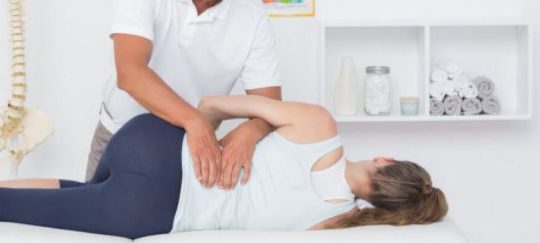
Ways to Reduce Chronic Back Pain
If back pain lasts for three months or longer, it is considered to be chronic back pain. It comes and goes, bringing temporary relief but the pain comes back within a short period of time. Chronic back pain can be particularly frustrating if you don’t know what is causing it specifically.
When dealing with back pain, it’s important to find the cause early. Visiting doctors or specialists in Dubai can help you determine the cause and can help you make lifestyle changes to relieve spasms and pain.
Common Causes of Chronic Back Pain
While chronic back pain is usually related to age, it can also result from previous injuries. Common causes include:
- Herniated or slipped discs
- Arthritis of the spine
- Myofascial pain syndrome that causes unexplained tenderness and pain in the muscles
- Spinal stenosis that causes narrowing of the spinal canal
In many cases, it can be difficult to determine the exact cause of chronic back pain. If the source of the pain cannot be identified, you can work on reducing flare-ups to make the pain manageable.
Ways to Relieve or Reduce Chronic Back Pain
Physical Therapy
Exercise is key to treating chronic back pain. It is often the first method recommended to those suffering from severe pain. As you work with a physical therapist, you will practice tailored exercises that will be specific to your condition and symptoms. Common physical therapy methods include aerobic exercises, core strengthening, retraining your posture, stretching and flexibility exercises and testing the limits of pain tolerance.
Sleep Better
You may find it harder to fall asleep when you’re suffering from severe pain. Poor sleeping positions are often the cause of back pain. Doctors and physicians recommend you lie on your side with a pillow in between your knees so that you keep your spine in a neutral position, thus relieving the strain on your back. If you do want to sleep on your back, place a pillow under your knees.
Maintain Good Posture
Something we’ve all been told is that slouching is bad. Poor posture makes back pain worse, especially if you have to sit down for long periods of time. Try your best not to slump over and sit upright with shoulders relaxed and your back against the chair. You can also try putting a pillow between your lower back and the back of the chair.
Stay Active
Staying active and continuing to exercise is one of the best ways to relieve back pain. Simple exercises like walking can be extremely helpful as well, as it will get you out of your sitting posture and puts the body in an upright position.
Apply Heat and Ice
Heat and cold packs are known to be comforting to the body. Doctors typically recommend using ice 48 hours after an injury, especially if there’s swelling, and then switching to heat.
Stop Smoking
Smoking doesn’t only affect the lungs, it can have serious consequences on your back too. Smokers are more likely to have back pain as nicotine causes small blood vessels to constrict, reducing the blood flow to the soft tissues in our backs.
Talk Therapy
As back pain is linked to psychological conditions such as depression and anxiety, therapy can be helpful in reducing pain. Cognitive behavioral therapy (CBT) can be effective as doctors can target how people with back pain think about physical activity, and help them build a routine that helps them stay physically active.
Massage Therapy
Studies have found that those patients who had weekly massages had improved pain and functioning. While the effects of massages can last depending on each patient, some may feel relief for anywhere from 6 months to a year. Spinal manipulation can also help relieve structural problems of the spine and help restore lost mobility.
Spinal Injections
Doctors may recommend spinal injections to help reduce back pain for some patients. Corticosteroid injections can relieve inflammation that causes pain.
Surgery
If the cause of back pain is a bulging or herniated disc, surgeons may recommend a discectomy to remove or repair the disc material. Other procedures such as laminectomies and spinal fusions may also be recommended as a way to help relieve pressure on the spine.
Pain Relievers
Over-the-counter pain relievers can help reduce and relieve pain significantly. Nonsteroidal anti-inflammatory drugs are commonly taken for back pain and can be purchased at pharmacies. If you need stronger medication, doctors can prescribe pain relievers or muscle relaxants that can ease painful muscle spasms.

